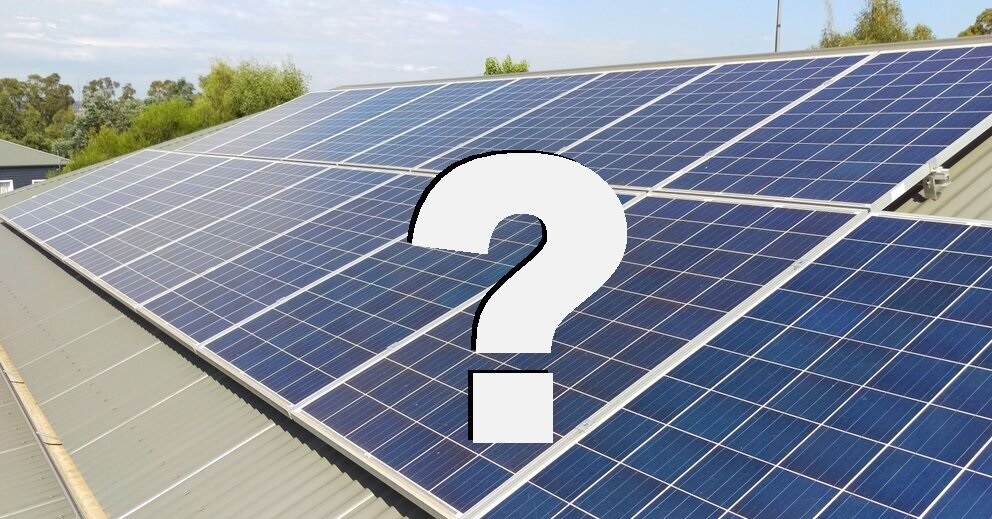
These days, solar panels are widely used as a symbol of sustainable living and renewable energy. However, a number of myths and misconceptions have surfaced due to its growing popularity, which may discourage consumers from using this sustainable technology.
Let us debunk some common myths about solar panels.
Fact: Solar panels used in hot, chilly, or even gloomy conditions. In colder climates than warmer ones, solar panel technology is much more effective in providing effective and efficient operation. Furthermore, the effectiveness of solar panels is unaffected by cloudy conditions. It still can produce enough electricity to be a useful power source. A sunny, chilly winter day generates just as much energy as a scorching summer day. The United Kingdom, China, Italy, Germany (which leads the world market for solar modules), and China are a few examples of nations with effective such systems.
Fact: The grid will naturally shut down if you depend on it during a power outage since it’s risky for a technician to run energy through a cable repaired. That signals to the inverter that both the power grid and the solar panels have ceased to produce electricity.
Fact: Data from 2009 to 2015 demonstrates that as solar panels become more accessible, investment has generally increased. There is a 30% reduction in average cost. Using solar energy to produce power is more cost-effective than using coal internationally.
One of the most economical methods to power a home is solar energy. It’s time to consider solar energy as a feasible option as the demand for environmentally friendly power increases. See your savings by requesting an estimate for up to 3 residential solar panels.
Fact: If you work with a reliable manufacturer, installing solar panels is relatively easy. Solar panels are simpler to maintain if the system is ideally linked to the power grid (typical in power systems). Solar panels merely require a quick rinse with water to remove any built-up dirt, mud, or other debris. Hail and sleet thrown at solar panels without damaging them. Battery-based systems require more frequent cleaning than non-battery-based systems, but the latter is more prevalent, and the former isn’t any less expensive than current systems.
Fact: The roof area that solar panels cover is protected and preserved, which is beneficial. The panels are installed on top of the roof, not directly attached to it, so they readily removed if the roof they are resting on needs to fix, which is an uncommon scenario. Typically, the sealant is used to fill in any gaps between the rooftop and the panels. Additionally, metal “flashing” or covers are used to protect the mounts as an additional barrier. Remember to inspect your roof for damage before installing a new rooftop.
Fact: Although your system connects to the grid and you reside on it, the internet meter system will work in your favor. You can use your present local utility if wired into the electrical grid. Therefore, if you generate more electricity on certain days than others, your account will ultimately be credited with more electricity. The extra electricity that is eventually produce will utilize to power your home straight from the grid if you require more power in the evening when the network is not in use. When you switch, you won’t notice anything different, and the price of electricity will go down as a result.
Fact: Your home’s worth rises thanks to solar panels. According to numerous studies, houses with solar panels sell more quickly than those without. Solar panels typically cost between £5,000 and £8,000, but they will save you money over time since they add an average of £14,000 to the value of your home. To what extent, though, relies entirely on its worth?
Programs like the former Feed-In Tariff (FiT) also provide homeowners with even bigger savings. If a home applies for and is approved into the feed-in price scheme before March 31, 2019, it will be appealing to buyers because the house will continue to benefit from the subsidies for years to come. There will be some.
Fact: Every homeowner’s particular needs are consider while designing solar panels. When figuring out how much it will cost to install solar panels, special consideration is given to the direction and grade of the house’s roof. In addition, considering the roof’s surroundings, we place it in a sunny location that isn’t shaded by nearby trees or structures.
Fact: Coal is not a clean energy source, solar energy is cleaner than “clean coal.” One of the worst fossil fuels is coal. As mountains are blown away during coal mining, creating pools of black muck in their wake, many health issues result. More carbon pollution, mercury and smog is produced as more coal is burnt, which causes negative impacts on the environment.
Fact: In actuality, solar panels have a 25-year lifespan after when they can be recycled. Which manufacturer you choose for mounting your solar panels depends entirely on this. Determining whether solar panels have recycled might be challenging because most continue to function optimally. Some manufacturers will also recycle them for no charge.
Despite to common myths, solar energy can provide power in a variety of climates, is becoming cheaper, requires minimal maintenance, and has greatly increased efficiency. It is critical to acknowledge the potential of solar energy to lessen our reliance on fossil fuels and advance a cleaner, healthier planet as the world struggles with the problem of climate change. We can persuade more people to embrace solar energy as a practical and necessary source of renewable energy by dispelling these widespread misconceptions about it.
